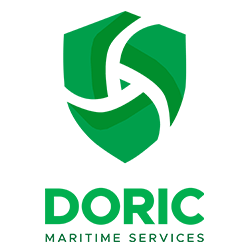Intelligence reporting can be necessary when geopolitical and unprecedented maritime emergencies and threats appear out of the blue at sea. You will realize what you are missing in life when money laundering, cargo theft, piracy, kidnappings, and even murder take place.
You are missing facts and figures. And that’s leading to huge losses. Sometimes it can impact the nationwide economy, with banks and marine insurers feeling a tug in their pockets. Sometimes we got the facts. We just don’t know what to do with them. So data and insight is your friend here. With insight into your facts and figures, you can make the right calls.
Table of Contents
What is Maritime Intelligence Reporting?
Let’s first understand what an intelligence report is. An intelligence report is a summary of all information to stabilize its dissemination. It helps provide a paper trail of intelligence while keeping the source safe. When reporting is standardized, law enforcement communities and their partner agencies may trust one other’s findings.
There are different types of intelligence reporting, like:
-
Security Alert Bulletin
We issue a security bulletin when a solution is found to an exposed flaw. Both implementation- and protocol-level vulnerabilities exist. To stay up-to-date on the latest implementations, we can take advantage of mitigating the flaws noted in the bulletin.
-
Weekly Security Intelligence Report
Every week, we release a report updating the public on the security situation at seaports and terminals. The report contextualizes the week’s significant events. This way, it draws attention to the nature of the threats we face. We may improvise by reflecting on our marine operations.
-
Security Threat Assessments
By highlighting possible dangers, our security evaluation map may help with trip preparations. If you care about the well-being of your staff, you will do whatever it takes to stay informed.
DoricNG‘s Security Risk Assessment Map provides an in-depth analysis of the dangers and risks present in the nation where your business is based. Therefore, your team will be more equipped to deal with the unknowns of working in some of the world’s most dangerous places.
Along with military and commercially determined High-Danger Regions and Voluntary Reporting Areas, the Maritime Domain also displays areas at risk from maritime crime and piracy.
-
Monthly Intelligence Report
Helping maritime operators stay ahead of the latest maritime security developments around the world, the Monthly Intelligence Report contains worldwide area threat assessments and updates.
It also consists of in-depth analyses of hot topics, thereby minimizing risk and ensuring the safety of assets and crews. Usually almost 30 pages long, it is an invaluable resource for many of our customers’ strategies.
-
Whitepapers & hot topics
We frequently produce whitepapers on high-risk areas, complex threat issues, or other subjects relevant to global supply chain security. These whitepapers are distributed to our clients and our newsletter mailing list.
Click through below to see all of our available whitepapers, and sign up for our newsletter to receive notifications of new publications on security issue hot topics.
Intelligence Reporting at DoricNG
DoricNG displays a complete understanding of maritime security threats and situations worldwide with its thorough assessments made monthly and weekly, briefly and thoroughly. We know how fast a crisis can blow up with and without warning.
Shipping vessels can be invaded when notices go unnoted, and businesses suffer due to negligence.
The repercussions of such activities impact the relationship between countries due to territorial issues and properties. Socioeconomic situations can deteriorate and lead to national discord. Hence, DoricNG is your ultimate maritime security that will ensure the business suffers no loss of products or employees.
While we have all the security you need for your vessels, ports, and docks to be safe and uninvaded, we also regularly create intelligence reports. We have a full-stack intelligence team that makes reports on worldwide and specific maritime issues. Maritime security issues cover businesses, trade, and other vital maritime operations. DoricNG prepares intelligence reports on anything relevant and in-between.
We have numerous data sources, many classified within our reach and hundreds adding up daily. Our analysts are constantly catching up on every piece of data evidence with the help of Ai and codes. This data we further develop into insightful analysis that helps with decision-making.
How DoricNG Makes Maritime Intelligence Reports:
With gained insight,
DoricNG determines its next move to ship vessels safely and lawfully. To achieve this, we hire none but shipping, finance, insurance, and law experts who can extract data best. We can find vessel movements that may get into trouble with the compliance authority. With this data, we make room for operational opportunities that may raise efficiency.
Our codes and Ai calculate the risk after assessing it. We predict voyage inefficiencies through previous delayed decisions. We collect, analyze and compare historical data to gain an average insight into the overall vessel performance and every territory it has passed. The statistics going through every step are profound.
Here’s a short list of all the points, positions, and data we analyze:
- Vessel movements
- Ports & Terminals
- Sanctions
- Vessel
- Casualties & Emergencies
How we make progressive insight
We develop data into insight with
-
Algorithms
We bring and verify relevant data with algorithms.
-
Artificial Intelligence
Ai helps analyze patterns, along with their repercussions.
-
Industry Expertise
We can deliver analytics with relevant industry expertise.
-
Analytical methodology
We develop methods over data analysis, which then becomes maritime intelligence report, ratings, and tools to help our clients with any journal intelligence and national security problem.
Data Collection Paths
We scour AIS messages taken from other vessels in nearby tracks over a kilometer away through satellite networks. There is no shortage of data as we receive data from any shipborne from any watercraft.
Here is a list of all the networks we receive:
- Terrestrial Network
- Satellite Network
- Our Agent Network
- Shipborne Network
Conclusion
If you want the most comprehensive intelligence reporting guide from threat assessment to observing vessel movement and everything in between, DoricNG is the best private maritime security company. So contact us now if you need some ships safeguarded and proper observations made on each detail at sea with absolute precision.



